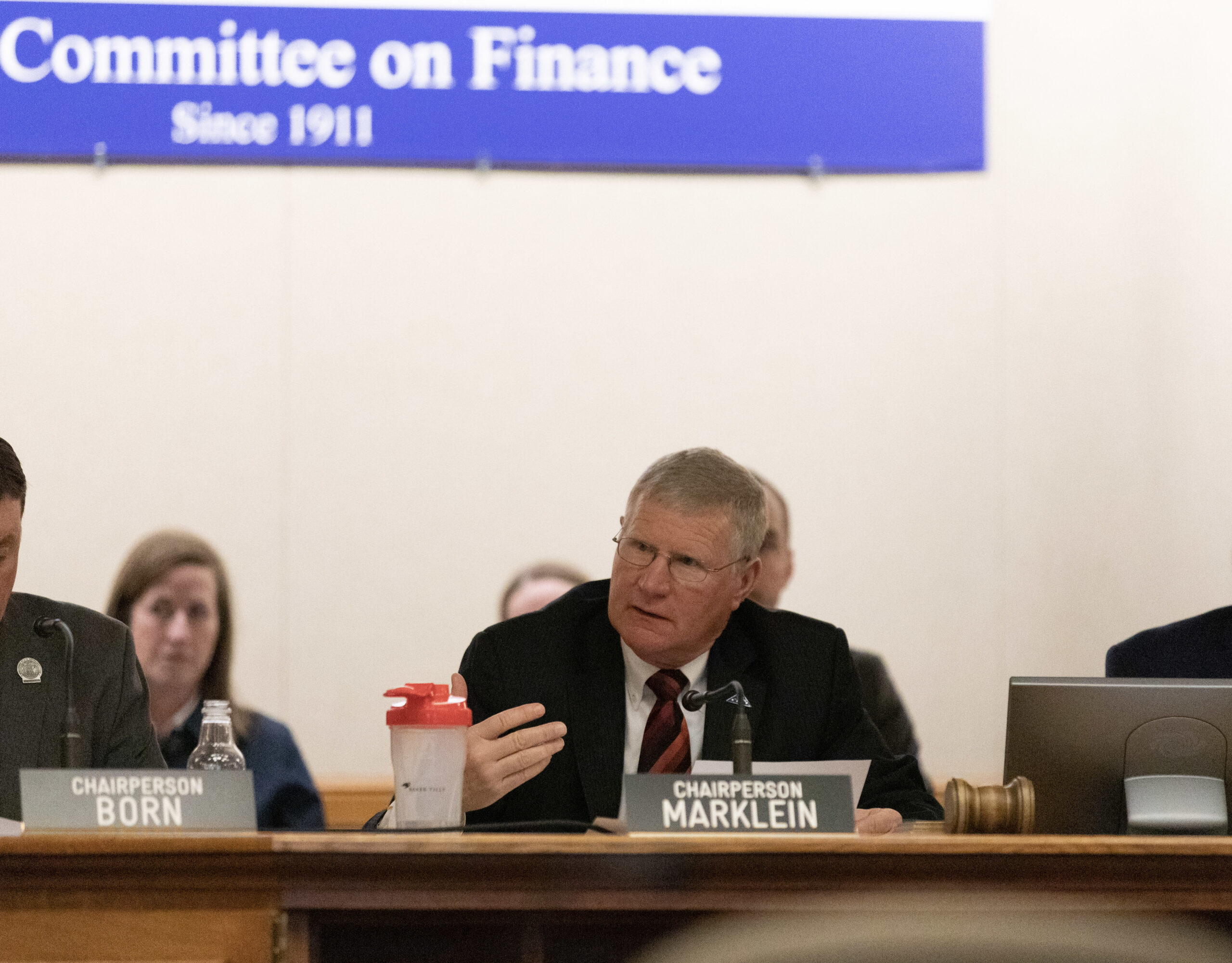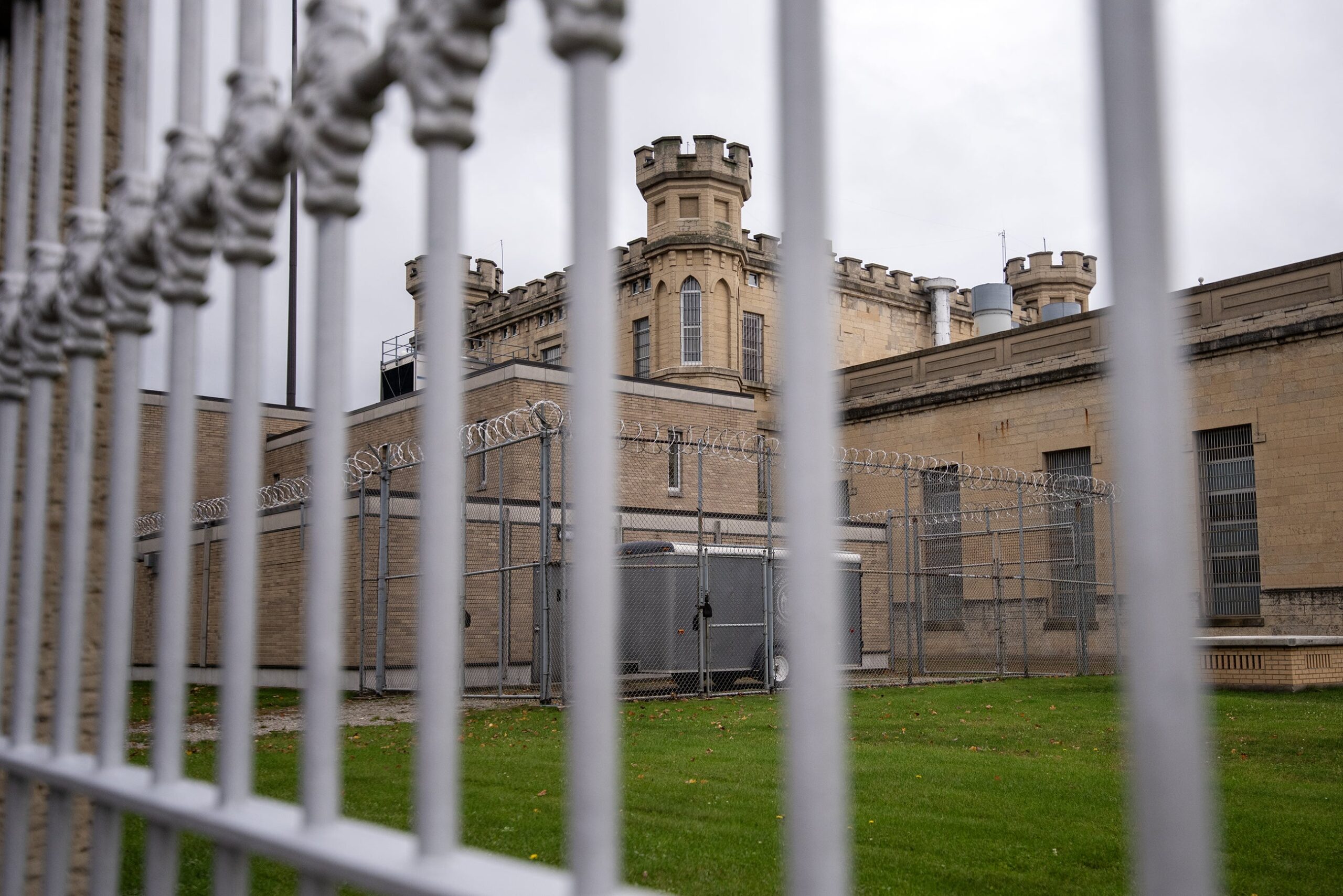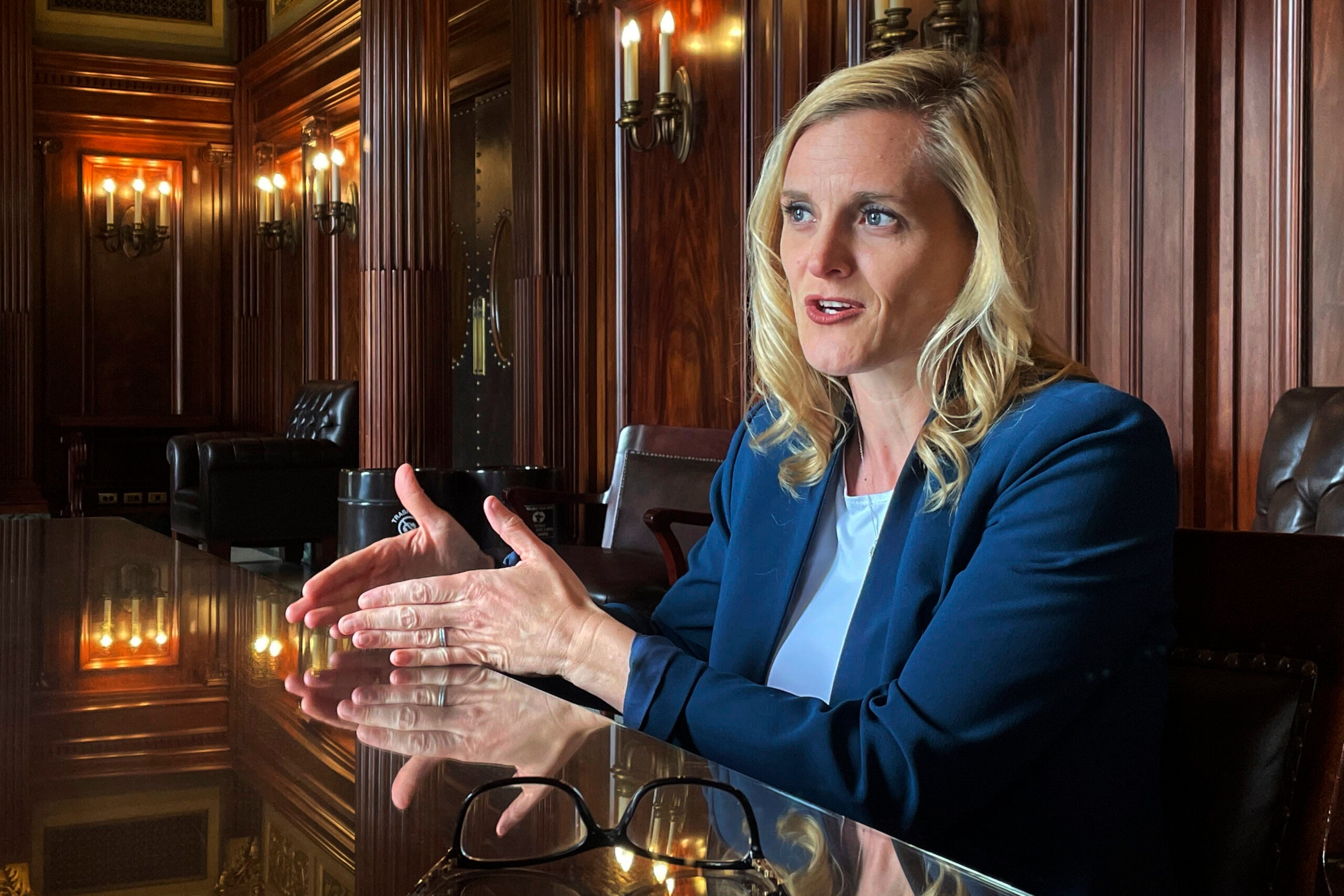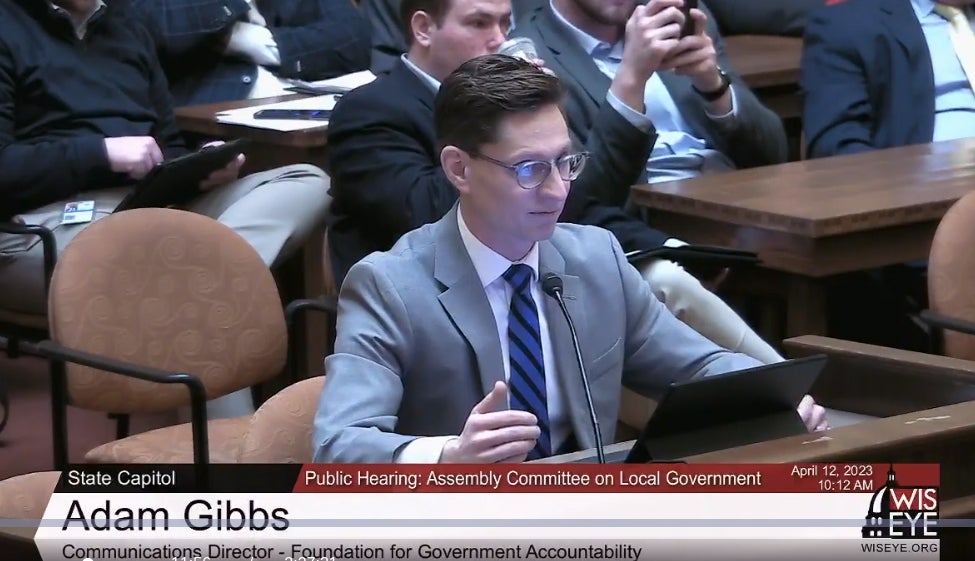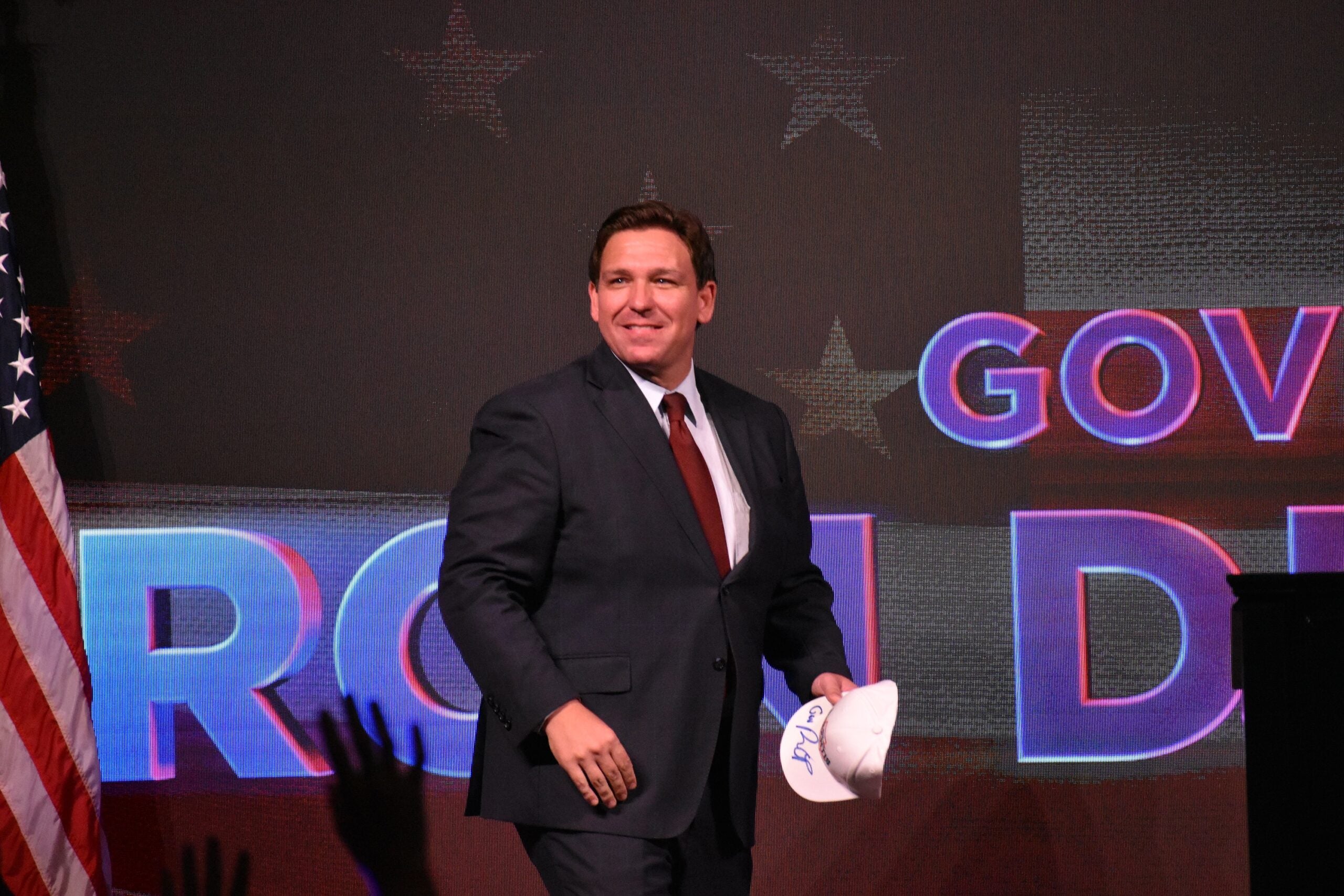A conservative think tank has filed a federal lawsuit against Democratic Wisconsin Gov. Tony Evers, alleging he violated First Amendment rights of staff members who were denied access to a press briefing and were not added to the administration’s media advisory list.
The MacIver Institute for Public Policy filed the lawsuit Tuesday in federal court in Madison. The complaint, which was written by attorney Daniel Suhr of the Liberty Justice Center in Chicago, alleges MacIver reporters Bill Osmulski and Matt Kittle asked the governor’s office to add them to the administration’s media advisory list but never heard back.
“They received no response and have never received a media advisory of an upcoming event by the governor in the subsequent six months, although numerous media advisories have been sent out to an email list of approximately 1,000 local, state, and national reporters and news outlets,” Suhr wrote.
News with a little more humanity
WPR’s “Wisconsin Today” newsletter keeps you connected to the state you love without feeling overwhelmed. No paywall. No agenda. No corporate filter.
The lawsuit also contends that on Feb. 28, Evers held a press briefing at the state Capitol to explain the governor’s upcoming budget proposal. The event was an embargoed, on-background briefing, which means reporters were able to ask questions and write stories that would be published after the governor’s budget was released publicly. The complaint states Kittle and Osmulski emailed the governor’s staff to reserve a seat at the briefing but they were denied access when they tried to attend.
In an interview with WPR, Suhr said the lawsuit is the latest attempt to ensure equal press access in Wisconsin.
“Part of the First Amendment’s guarantee of the freedom of the press is the right of every journalist to be in the room and ask those tough questions on an equal basis,” Suh said. “In other words, public officials don’t get to pick and choose which journalists can, say, participate in a press conference based on whether or not that journalist’s editorial board might agree with the public official.”
According to the lawsuit, the MacIver Institute received Evers’ media advisory list through open records requests, and the list contains “liberal-leaning media organizations” along with the Democratic Party of Wisconsin and staff members working for Democratic state lawmakers.
“And the only conclusion we could reach is that they have specifically targeted the MacIver Institute for exclusion from these otherwise generally available press events and the First Amendment just doesn’t let you do that,” Suhr said.
In an email sent to WPR, Evers’ deputy chief of staff, Melissa Baldauff, wrote that “members of the MacIver Institute have attended several of the governors events, including the budget signing at the Capitol, where a MacIver member was called on to ask the first question.”
“Our administration provides many opportunities for both reporters and the public to attend open events with the governor,” Baldauff wrote. “Gov. Evers is committed to openness and transparency in state government, and he believes strongly that a fair and unbiased press corps is essential to our democracy, especially now as Wisconsinites and all Americans are calling for accountability from elected officials who refuse to take action on gun safety reform, health care, and the hatred and violence borne of white supremacy.”
Baldauff did not reply to a follow-up question about whether or not the MacIver Institute would be included in the governor’s media advisory list.
Wisconsin Freedom of Information Council president Bill Lueders told WPR the council stands by the MacIver Institute in it’s fight for press access and he may be willing to consider filing an amicus brief to the lawsuit, though he hadn’t discussed that with other members as of Wednesday morning.
“It’s not important whether the Evers administration likes a particular media outlet,” Lueders said. “It’s not appropriate and it’s probably not legal for it to treat an outlet differently in terms of basic access. The Evers administration doesn’t have to answer MacIver Institute’s questions if it doesn’t want to. But the idea of barring its reporters from otherwise open press events is just ridiculous. What are they afraid of?”
The MacIver Institute is asking the judge presiding over the case to declare that it was unconstitutional for the Evers administration to exclude the organization’s reporters from the media advisory list and the February budget briefing. It is also seeking for the Evers administration to pay court costs and attorney fees.
Editor’s note: This story has been updated with original reporting by WPR. It will be updated.
Wisconsin Public Radio, @ Copyright 2025, Board of Regents of the University of Wisconsin System and Wisconsin Educational Communications Board. The Associated Press contributed to this report. All rights reserved. This material may not be published, broadcast, rewritten or redistributed.



